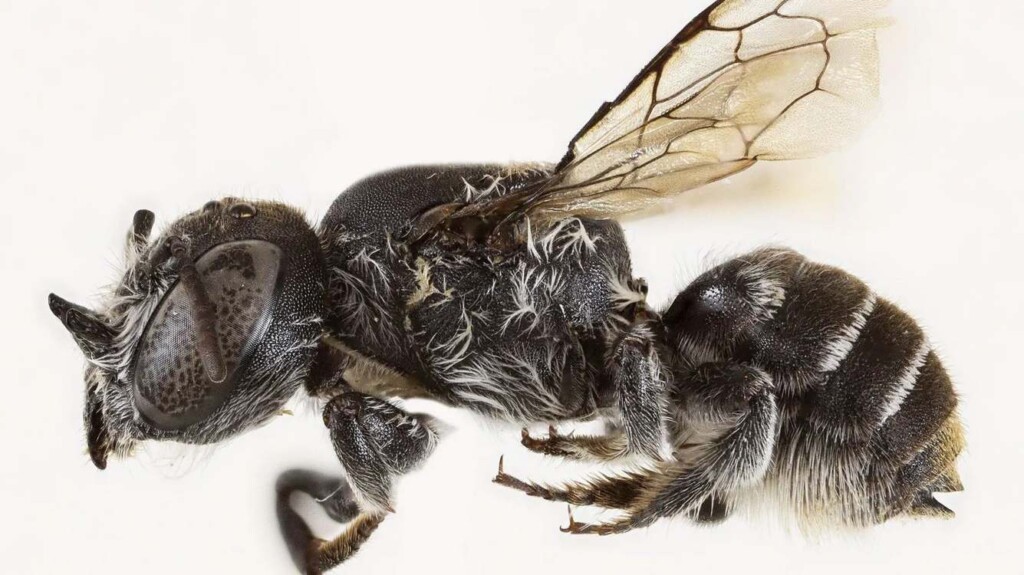Scientist Discovers New Bee Species With ‘Devil-Like’ Horns–Names Her ‘Lucifer’

She’s got devil-like horns, but she ain’t after your soul: she’s only looking for pollen.
She’s Megachile lucifer, a new species of solitary bee identified in Western Australia’s Goldfields region by a team of scientists inspecting a rare wildflower habitat.
She’s also the first new bee species added to the genus in 20 years, making this resident of the Bremer Ranges east of Perth a devilishly good reason to increase habitat protections in the area.
“The female had these incredible little horns on her face,” said Dr. Kit Prendergast from Curtin University, who made the discovery at a time in her life when she had become a fan of a particular Netflix show.
“When writing up the new species description I was watching the Netflix show Lucifer at the time, and the name just fit perfectly.”
Only the females sport these devil horns, which could be an additional set of wands for reaching the pollen of certain plants, or a defensive weapon. The full description of the species was published in the Journal of Hymenoptera Research
The area in and around where the bee was found also contains the aforementioned rare wildflowers, and along with these charismatic new bees, Dr. Prendergast suggests it should be “formally protected and gazetted as conservation land that cannot be cleared.”
BEES: A Country of 2 Million is the World Leader in Beekeeping and Protecting Pollinators
“Because the new species was found in the same small area as the endangered wildflower, both could be at risk from habitat disturbance and other threatening processes like climate change,” she told the BBC.
Solitary bee species are major pollinators of wild plants, and there are over 1,500 species in the Megachile genus alone.



Please be good and do not spam. Thank you.